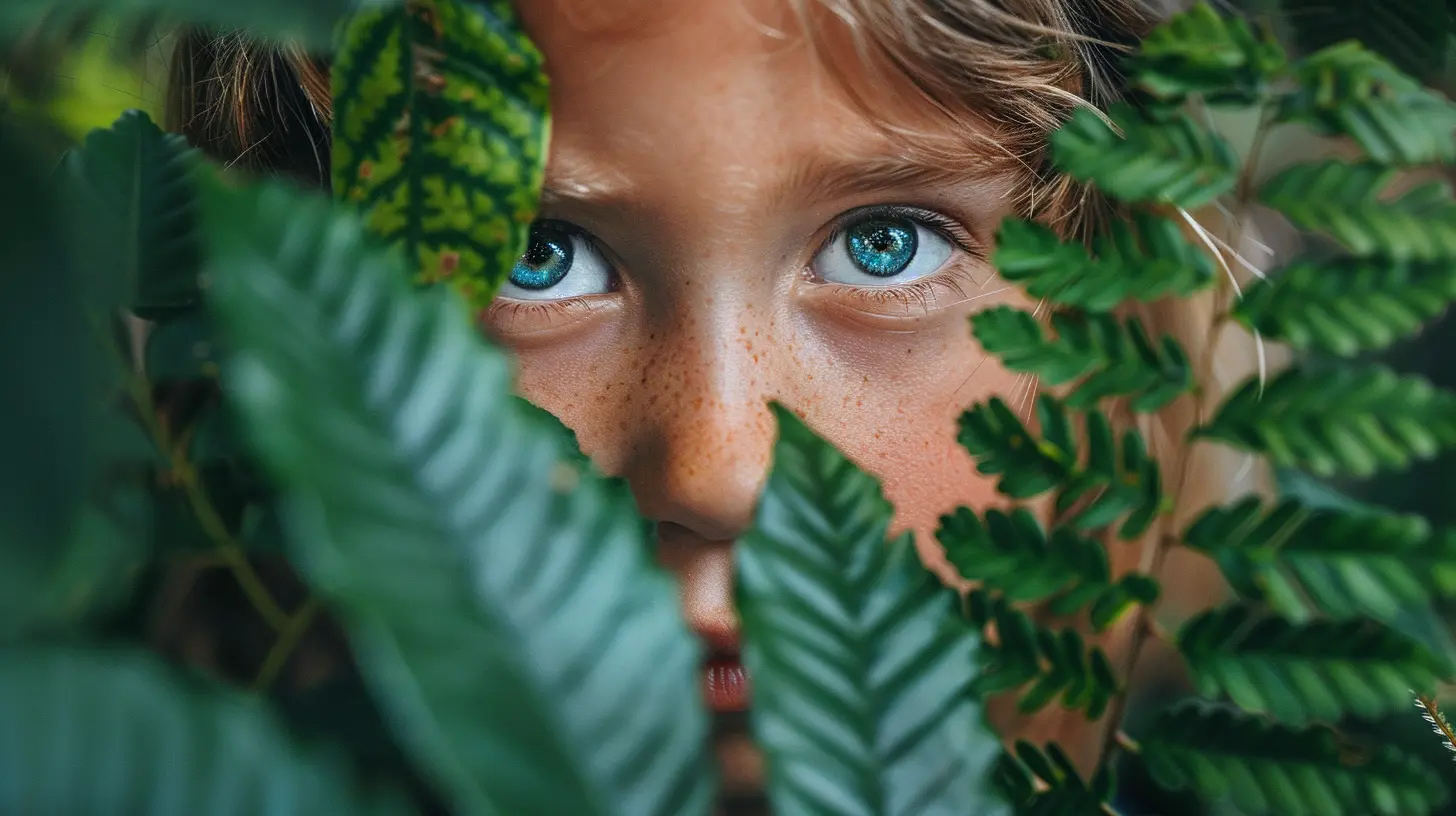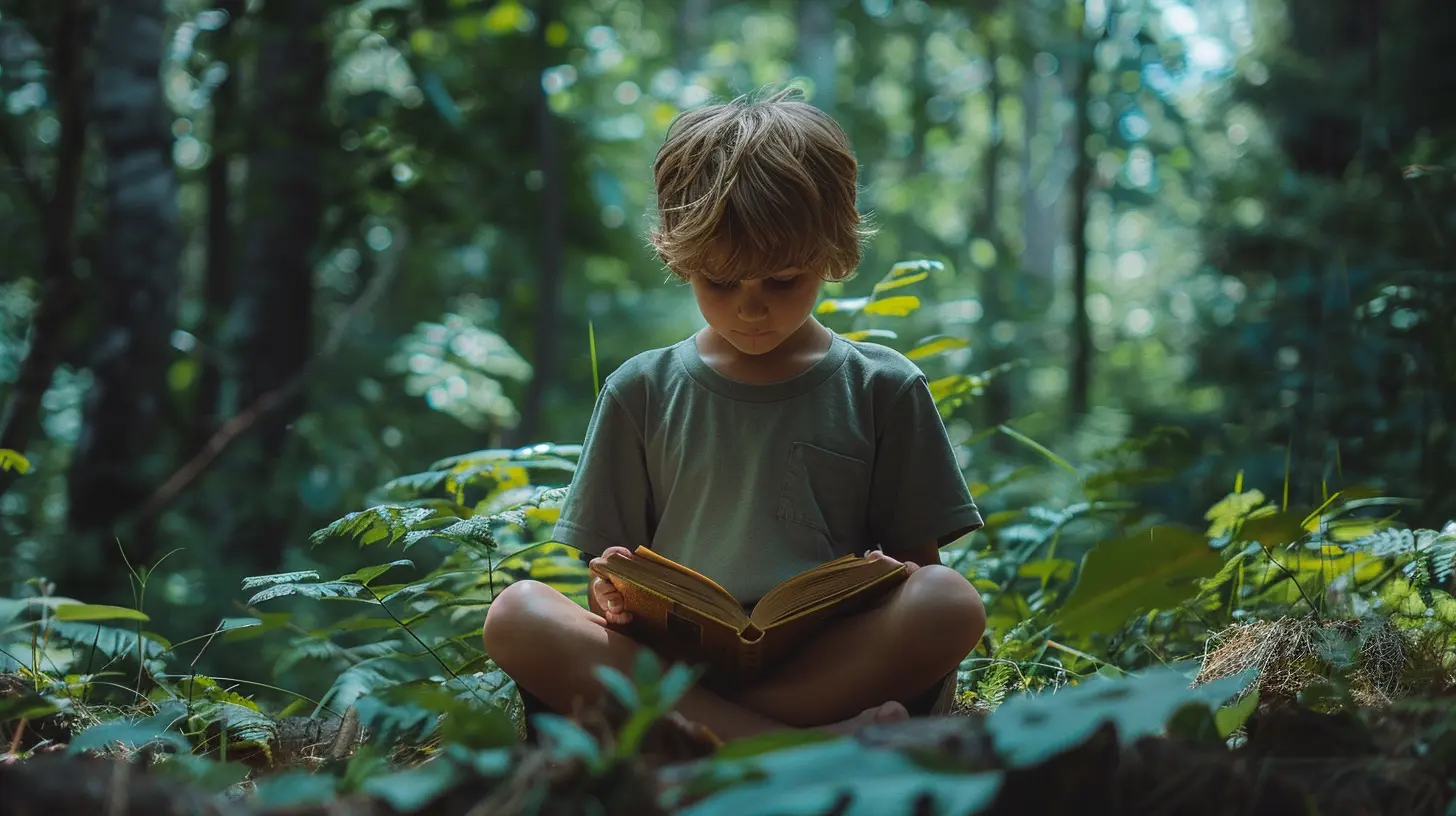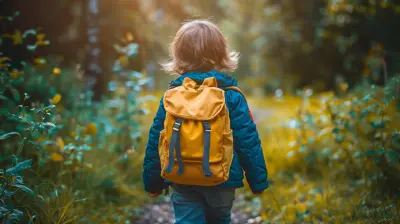The Benefits of Nature-Based Learning in Homeschool
1 October 2025
The fast-paced modern world has brought us endless screens, constant notifications, and more sitting down than running around. But, let’s pause for a second and think about something we might be missing—nature. It seems so simple, yet in our homeschooling adventures, it could be the key to unlocking some major brainpower. Nature-based learning in homeschool isn’t just a trendy idea; it’s full of real, tangible benefits that could make your homeschooling journey even more rewarding.
If you've ever wondered whether to take homeschooling beyond your kitchen table and into the great outdoors, you’re in the right place. Let’s explore how nature can turn an ordinary homeschool day into an extraordinary learning experience!

What is Nature-Based Learning?
Before diving into the benefits, let’s first break down what nature-based learning actually means. In simple terms, nature-based learning involves using the outdoors as a classroom. Unlike traditional learning, which typically revolves around textbooks, worksheets, and rigid schedules, nature-based learning encourages curiosity and discovery by interacting with the natural environment.It doesn’t mean you need to live in the wilderness or trek through forests every day (although, if that’s your thing, go for it!). Even day-to-day lessons—like math, science, or language arts—can be enhanced by merely stepping into your backyard or local park. Nature becomes the teacher, and the possibilities are endless.
Why Nature?
Humans are wired to connect with nature. There's something instinctively calming and engaging about the great outdoors. Think about it: children are naturally curious about their environment—they ask questions, touch things, and look closer at bugs in the grass. Nature offers a sensory-rich environment that can fuel this innate curiosity and, better yet, help brain development.Now, let’s break down why nature-based learning is not just fun, but incredibly beneficial!

1. Enhances Creative Thinking
Let's be honest, sometimes traditional learning can feel a little stagnant. Worksheets and textbooks, while effective, can start to feel a little one-dimensional. You know what’s the polar opposite of that? Nature.Outside, everything changes, and new experiences unfold constantly. Clouds drift by, leaves rustle, birds chirp—there's a dynamic world that allows kids to engage with it in creative ways. When children are exposed to the unpredictability of nature, they are encouraged to think outside the box.
For instance, if you're doing an art lesson, instead of drawing on paper, why not gather leaves, sticks, and stones to create natural artwork? This creative thinking extends far beyond art; it seeps into problem-solving, critical thinking, and planning. Nature pushes kids to adapt, imagine, and innovate.
How to Implement Nature-Based Creative Thinking:
- Let your child gather items from nature and create a project—this could be a nature collage, a leaf-rubbing drawing, or even a fort-building exercise.- Use scenes from nature as story prompts for creative writing exercises.

2. Fosters Independence and Confidence
Nature naturally invites exploration. When kids are out in the open, they feel free to roam, lead, and make decisions. This freedom fosters independence. Unlike structured settings that can sometimes put kids in a “follow the leader” mode, nature gives each child the chance to be their own guide. They decide which rock to flip, which trail to walk, or which plant to investigate—and all on their own terms.This sense of autonomy builds confidence. When they discover something new or solve a challenge, like climbing a tree or balancing on a log, they feel accomplished. This personal ownership of success can't be found on the pages of a textbook.
How to Encourage Independence in Nature-Based Learning:
- Allow your child to lead the way during outdoor explorations.- Give them tasks like identifying birds or plants and let them research independently.

3. Boosts Physical Health and Motor Skills
It’s no secret: one of the significant benefits of nature-based learning is the physical activity that comes with it. When children are outdoors, they naturally engage in physical movements—whether it’s running, climbing, or even simple actions like bending down to observe a flower. These movements promote gross motor skills, agility, and coordination.Moreover, being outside in the fresh air, soaking up Vitamin D from the sun, and encountering natural elements has immense physical health benefits. It reduces stress levels, promotes well-being, and can even help improve sleep patterns.
How to Include Physical Health in Nature-Based Learning:
- Plan activities like nature walks, scavenger hunts, or obstacle courses to encourage physical movement.- Incorporate simple exercises like stretching or yoga poses that mimic animal movements.
4. Encourages Environmental Stewardship
One of the most valuable lessons we can teach our children is how to care for the world around them. When kids spend time in nature, they develop a sense of responsibility and connection to the environment. They begin to understand how ecosystems work and how their actions can impact the earth—both positively and negatively.This kind of learning goes beyond head knowledge; it becomes a matter of the heart. When children develop an emotional connection to nature, they are more likely to become conscious citizens who prioritize environmental stewardship as they grow older.
How to Develop Environmental Stewardship in Nature-Based Learning:
- Start a small garden with your child and teach them to care for it.- Discuss sustainability practices like recycling, composting, and reducing waste during outdoor lessons.
5. Promotes Mental Well-Being and Reduces Stress
Let’s face it—life can be stressful. And that stress doesn't just apply to adults; kids feel it, too. Homeschooling can sometimes feel overwhelming for both parents and children, especially when confined to the same indoor space. A simple way to alleviate this pressure? Step outside. Nature has an incredible calming effect.Multiple studies show that spending time in nature reduces anxiety, increases focus, and elevates mood. Outdoor spaces offer a natural remedy for emotional challenges and help children (and parents!) cope with stress.
And it's not just about feeling better; it’s about performing better. According to research, time spent in nature can improve cognitive function. Children can concentrate better, retain information more effectively, and develop sharper attention spans when learning is complemented by time outdoors.
How to Use Nature for Mental Health Benefits:
- Incorporate regular "nature breaks" during your homeschooling schedule to allow kids to destress and refresh.- Practice mindfulness or deep-breathing exercises while sitting outdoors.
6. Enhances Social Skills and Collaboration
Just because homeschooling happens at home doesn’t mean it’s a solitary lesson plan. Nature can actually be a great way to involve group learning and socialization. When children play and learn together outside, they naturally engage in teamwork and collaboration. Sharing outdoor spaces—whether it’s the playground, park, or a nature trail—fosters conversations, negotiations, and problem-solving as a group.This collaboration extends beyond siblings or fellow homeschool kids. Kids often feel a sense of community with the living world around them, too. They learn to respect the plants and animals they encounter, understanding that we all share this planet together.
How to Build Social Skills Using Nature-Based Learning:
- Gather a homeschool group for outdoor activities like nature scavenger hunts or group hikes.- Assign collaborative tasks like investigating ecosystems or building something creative (a fairy house, perhaps?).
7. Reinforces Core Academic Skills
Here’s the great thing about nature-based learning—it isn’t just about running around and climbing trees (though that definitely happens!). Outdoor environments can also be excellent for reinforcing core academic subjects.Math, for example, becomes more engaging when you’re counting tree rings, measuring the height of a tree, or calculating the distance of a hike. Science lessons come to life when kids learn about ecosystems, insects, and weather patterns in real-time. Even language arts can go outdoors when students journal their observations, describe sensory experiences, or craft stories inspired by the natural world.
Combining Academics with Nature:
- Use leaves or stones to explain mathematical concepts like grouping or fractions.- Conduct science experiments outdoors, like observing the water cycle or plant growth.
- Have storytelling sessions outdoors to inspire creative writing.
How to Get Started with Nature-Based Learning in Homeschool
So, how can you dive deeper into nature-based learning without feeling overwhelmed? It’s not about throwing away your structured lessons or curriculum; it’s about enhancing them. Here are some simple ideas to get started:1. Start Small: You don’t have to plan elaborate outdoor lessons right away. Start by taking your lessons outdoors for 30 minutes a day.
2. Visit Local Parks: Local nature areas, parks, or even your backyard can become your homeschooling area for the day.
3. Be Flexible: Let go of the pressure to follow strict lesson plans. Nature-based learning is all about flexibility and following your child’s curiosity.
4. Bring Essentials: Keep nature journals, magnifying glasses, or simple tools handy to help stir curiosity.
5. Join Nature-Based Groups: Reach out to other homeschoolers in your area. There are numerous outdoor co-ops and nature groups to get together with.
Conclusion
Nature-based learning in homeschool offers an incredible opportunity to enrich your child’s learning experience. It fosters creativity, independence, physical health, and environmental stewardship while promoting mental well-being and reinforcing academic skills. Whether you're climbing a mountain or simply taking a walk in the park, nature can be the perfect classroom for homeschooling families.So, grab your jackets, pack a snack, and step outside—you never know what incredible learning adventure awaits you out there!
all images in this post were generated using AI tools
Category:
HomeschoolingAuthor:

Liam Huffman
Discussion
rate this article
1 comments
Jack White
Embracing nature-based learning in homeschooling opens a world of discovery and growth for our children. It nurtures creativity, fosters resilience, and builds a deep connection to the environment. Let’s inspire our kids to explore, learn, and thrive—hand in hand with nature! 🌿✨
October 18, 2025 at 3:19 PM

Liam Huffman
Absolutely! Nature-based learning not only enhances creativity and resilience but also cultivates a lifelong appreciation for the environment. Let's continue to inspire our children through their natural surroundings! 🌱✨


